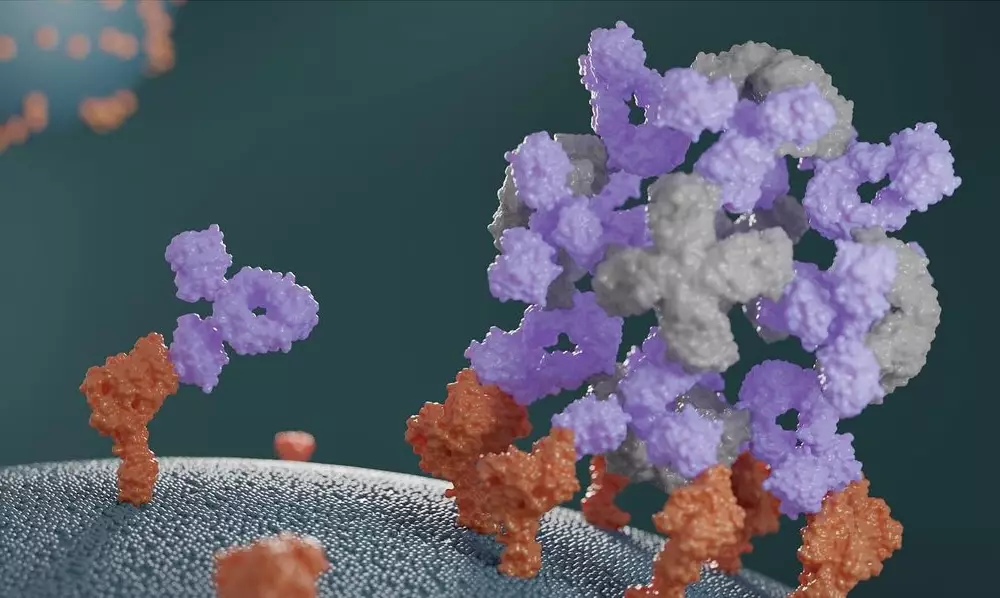In a significant development within the biotech sector, Archon Biosciences has emerged from the shadows of stealth mode, unveiling a remarkable achievement in attracting $20 million in seed funding. This biotech startup is focused on the innovative application of artificial intelligence in the design of novel biomolecules, with an eye toward enhancing the efficacy of antibody treatments. Leveraging groundbreaking research from Baker Lab at the University of Washington, overseen by esteemed computational biologist David Baker, Archon Biosciences is poised to make impactful strides in drug development.
Antibody treatments have been a cornerstone of therapeutic development. However, one of the primary challenges lies in the unpredictable nature of molecular biology, which often functions on a trial-and-error basis. The effectiveness of antibodies in binding to their target sites on cells can be highly variable, making the path from discovery to successful treatment fraught with uncertainty. Traditional methods may not effectively maximize the binding potential of antibodies, ultimately limiting their therapeutic impact and rendering some treatments ineffective.
Archon’s innovative approach, encapsulated in their creation of antibody cages (AbCs), seeks to mitigate this unpredictability. Drawing on the principle of aggregating multiple antibodies into a structured format, Archon aims to enhance the likelihood of these molecules successfully targeting and engaging with their intended proteins.
The mechanism behind Archon’s antibody cages is as ingenious as it is effective. By stacking antibodies into a geometrically engineered scaffold, such as a dodecahedron, the chances of successful binding to target proteins significantly increase. This development may be pivotal in transforming the way we assess and deploy antibody treatments, potentially leading to faster, safer, and more reliable drug development pipelines. Not only can this technology provide insights into why certain treatments have faltered in clinical settings, but it also presents an innovative avenue for researchers to engage previously intractable disease mechanisms.
James Lazarovits, co-founder and CEO of Archon, underscored the importance of having the right tools to manipulate these biological levers effectively. He emphasizes that while many disease targets are well understood, the key to unlocking their therapeutic potential lies in the development of advanced tools such as AbCs. With a proprietary protein design platform and rapid in-house manufacturing and testing capabilities, Archon aims to redefine biological product development.
The substantial $20 million funding round, primarily led by Madrona Ventures with support from other notable investment firms, heralds a strong endorsement of Archon’s vision and technological capabilities. Additionally, the company has secured approximately $7 million in grants from various institutes and government agencies, further solidifying its foundational support. With the strategic backing of seasoned investors, Archon is not only poised for growth but is also positioned to lead advancements in the field of protein design.
As the startup continues to operate out of Seattle—aligning it closely with the renowned University of Washington and Baker Lab—there is a growing anticipation for what lies ahead. TechCrunch has expressed interest in exploring Archon’s pioneering technologies further, signaling a strong enthusiasm from the tech and biotech community for the impact this organization could have on healthcare.
Archon Biosciences is at the forefront of a shifting paradigm within biotechnology, interweaving artificial intelligence with molecular biology to create more effective therapeutic options. By tackling the inherent limitations that currently frame antibody treatments, Archon is not merely another player in the crowded biotech space; it is ushering in innovation that could redefine standards in drug development. The implications of successful antibody cages extend beyond current therapy limitations—they may indeed open doors to previously inaccessible treatments and provide new life-saving solutions for various diseases. As research and development progresses, the anticipation surrounding Archon’s work underscores the transformative potential of intelligent biotechnological applications in modern medicine.

